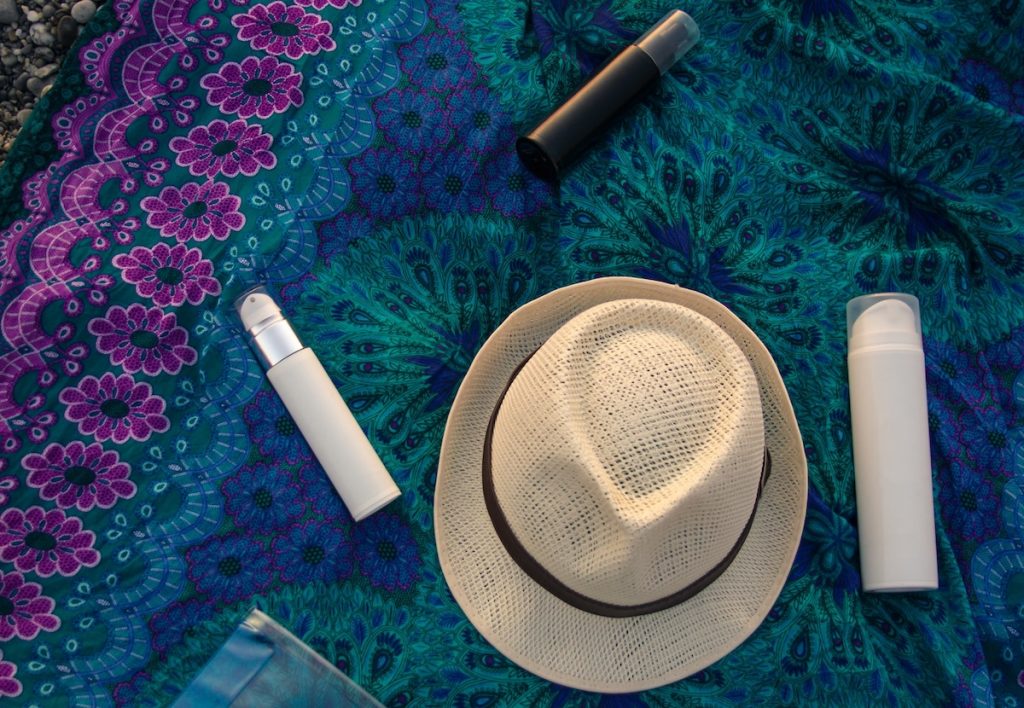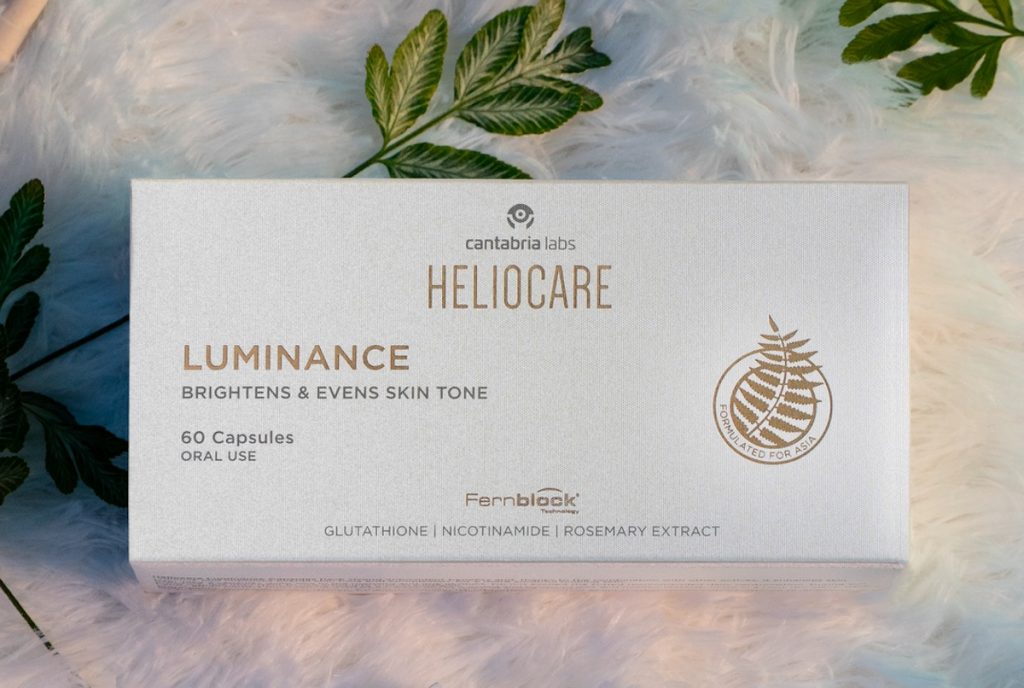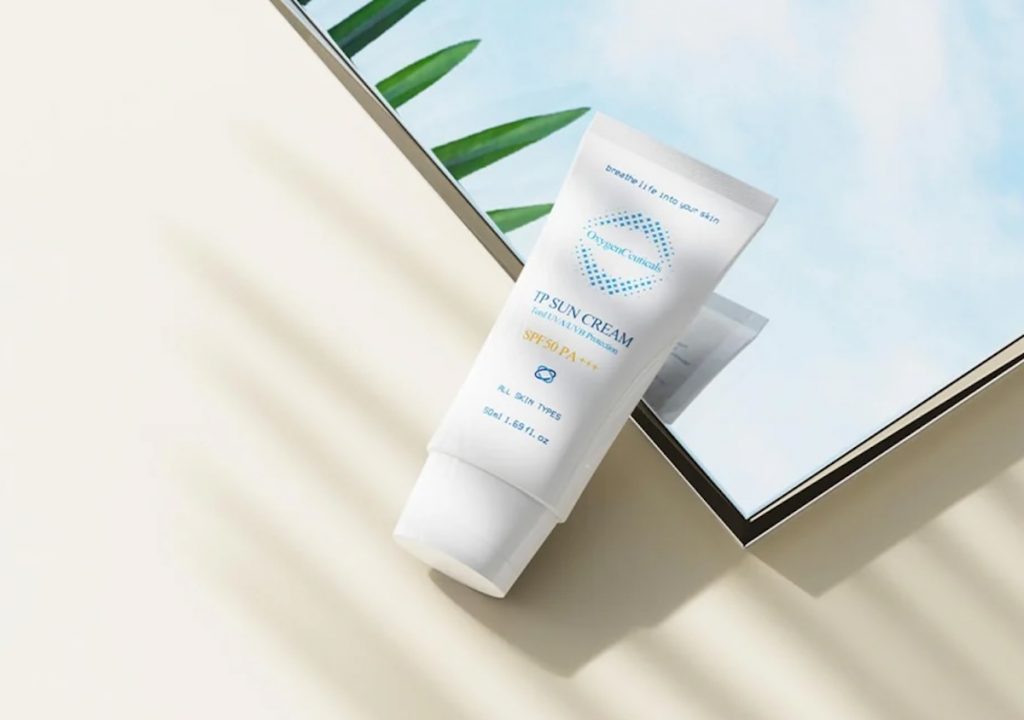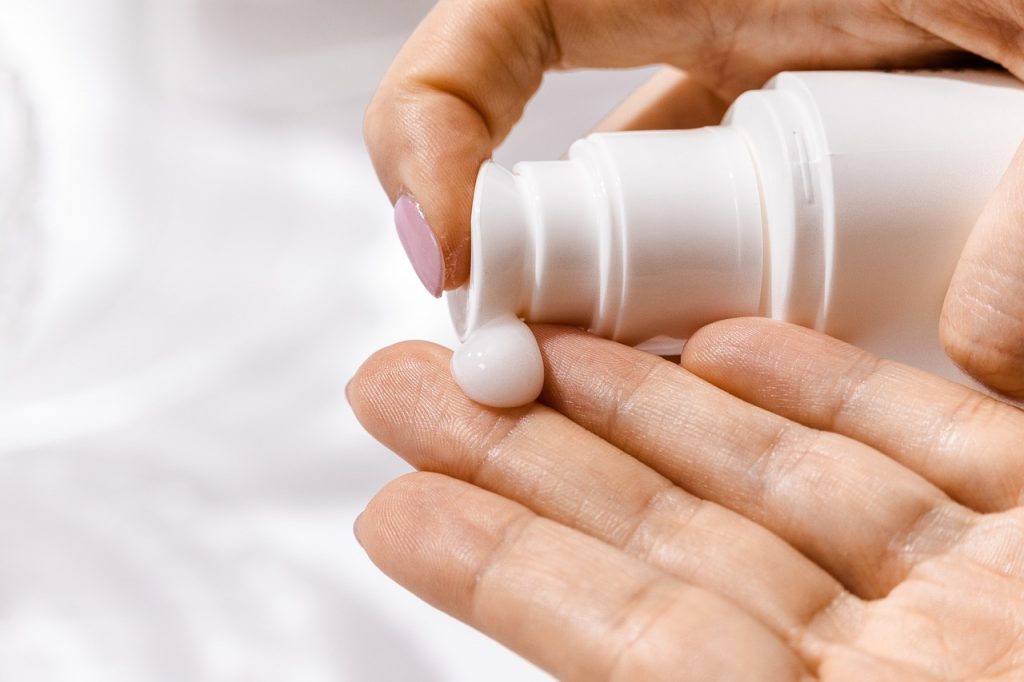Despite intermittent respite from the blazing heat with short stints of showers and thunderstorms, let’s face it, it’s still hot in the Lion City, extremely hot. Slathering on sunscreen has to be second nature by now, but do you really know the lowdown on sunblock, sunscreen, and SPF? There are so many brands out in the market, with multiple variations to choose from. Just what should we look for? Sunscreen or sunblock – is there a difference? Chemical or mineral? What about for kids and babies? Read on to find out more and be sun-safe as you head outdoors.
Sunblock Or Sunscreen?
Health.com states that “Sunblock is so named because it literally blocks UV rays by forming a physical shield, while sunscreen absorbs UV rays before your skin can.” Essentially, sunblocks contain zinc or titanium dioxide that shields you from the sub by deflecting the sun’s rays. Sunscreens can either be chemical-based or mineral-based.

According to Dr Christopher Chan from Cheongdam Aesthetic Clinic, “Chemical sunscreens absorb UV rays and convert them to heat, which is then released from the skin. However, mineral ones sit on top of the skin, reflecting UV rays away. This type of sunscreen tends to leave a white cast, especially on darker skin individuals; they are also more effective at protecting against blue light.” So is there a difference between the two? Dr Chan goes on to say that inherently there is no difference so we should choose whichever that works best for your skin type and preference.
What Is SPF?
Then what is SPF you might ask? SPF stands for Sun Protection Factor and as Dr Chan goes on to say, “Think of it as a shield against sunburn-causing UV-B rays. The higher the number, the stronger the shield!” While a broad spectrum sunscreen with SPF 30 offers adequate protection for most people, Dr Chan recommends that we, in sunny Singapore, go for SPF 50. This is especially so for those who work outdoors or have sensitive skin. Does this mean that the higher the SPF, the better the protection? Dr Chan states, “Yes, but with a caveat. While SPF 50+ blocks a slightly higher percentage of UVB rays compared to SPF 30 (around 98% vs. 97%), the difference in real-world protection may be minimal for those that do not have excessive sun exposure.”
How To Apply Sunblock / Sunscreen?
We all know what slather means, but do we know exactly how to slather effectively? Dr Chan recommends that we apply sunscreen generously 15 minutes before heading out and we cannot forget to put them on tricky areas like ears, lips, and backs of your hands! “Here’s easy way to gauge how much sunscreen is required for your face: Squeeze out a line of sunscreen over the entire length of your pointer and middle finger. That should be enough to cover your face thoroughly!”

What About For Kids And Babies?
If you’re out and about with your little ones, don’t forget to apply sun protection for them as well. Dr Chan says, “Look for a broad-spectrum, water-resistant SPF 50+ sunscreen labeled “fragrance-free” and “hypoallergenic.”
Oral Or Topical Sunscreens?
Aside from topical sunscreens, oral sunscreens have also increased in popularity over the years. Dr Chan emphasises that oral sunscreens should not traditional topical ones as the latter is still your best defence against UV rays. “I would like to think of oral sunscreen as a good addition to your sun protection routine to give you that extra protection.” He says that oral sunscreens are especially useful for two groups of people. Firstly, swimmers and beach-goers who lounge in the sun all day and reapplication of topical sunscreen becomes a hassle. Secondly, for those with sensitive skin and are affected by severe acne breakouts.

Heliocare Luminance is is an oral supplement with excellent DNA repair and antioxidant properties that is able to reduce free radical, preventing the formation of hyperpigmentation caused by external aggressors such as UV rays, digital devices, visible light and pollution.

As there are many sunblocks and sunscreens in the market, you might have to try a range before find the perfect one suited to your skin. Some contain moisturisers and also provide some form of coverage. OxygenCeuticals TP Sun Cream is one such product that not only offers sun protection but also moisturisers your skin and gives a touch of sheer colour.
Beyond Sunblock And Sunscreen?
Sun protection goes beyond sunblock and sunscreen. Here are some additional tips from Dr Chan:
Seek shade: Especially during peak sun hours (10 am to 4 pm).
Wear protective clothing: Opt for long sleeves, pants, hats with wide brims, and sunglasses that block UVA and UVB rays.

Limit sun exposure: Especially for children, avoid prolonged sun exposure.
Sunscreen reapplication: Reapply every two hours especially after sports or water activities out in the sun!
With this immense heat, you have to ensure you also heat proof yourself by taking breaks more frequently if you’re staying outdoors. Stay hydrated but drink wisely. Drinking too much can cause water intoxication where blood sodium levels fall. Doing more aerobic exercises like running and cardio workouts can also help you beat the heat by improving your body’s thermal capacity.



